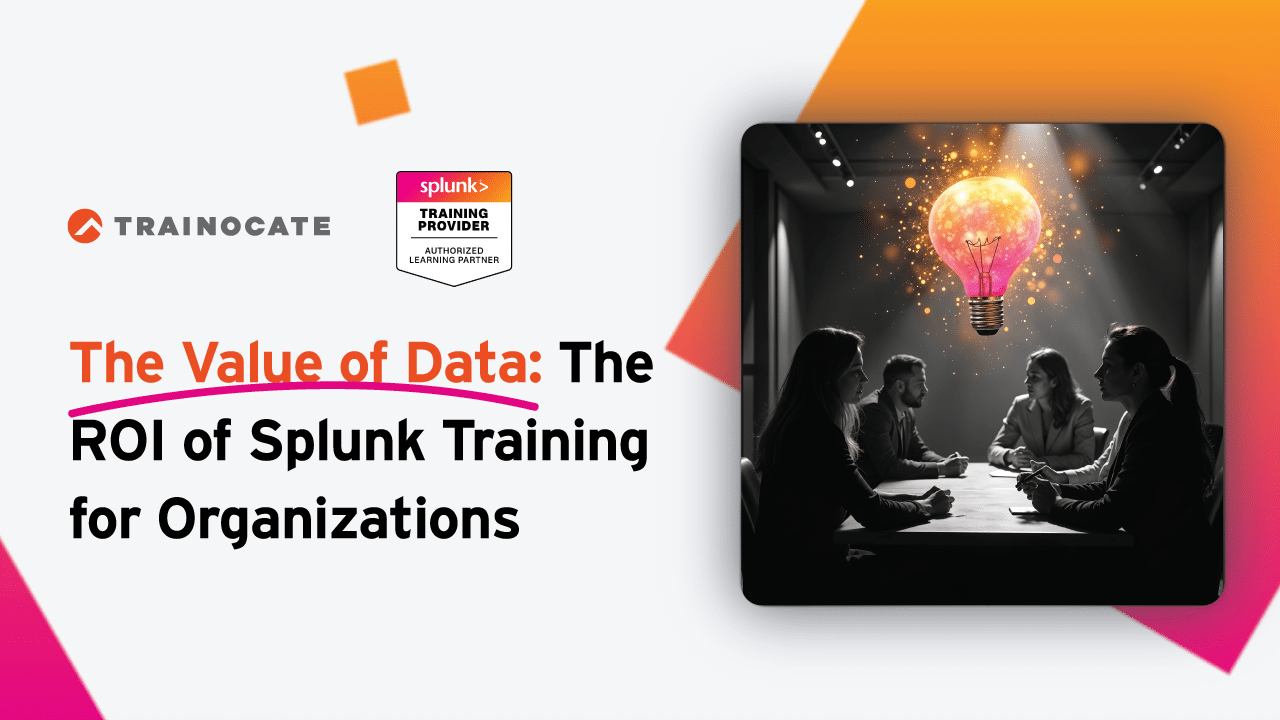Data Science Certifications for Higher Salaries in Malaysia
Data Science Certifications for Higher Salaries in Malaysia

How Much Does Data Scientist Earn in Malaysia?
Curious about data science salaries in Malaysia? Well, according to Glassdoor, a data scientist can earn anywhere between RM 3,000 to RM 18,000 per month, with an average pay of RM6,000 in Kuala Lumpur. However, this range isn’t set in stone. Your salary as a data scientist is influenced by several factors:
Skills:
The more specialized and in-demand your skills are, the higher your earning potential and makes you a valuable asset in a competitive job market.
Experience:
As with any profession, experience plays a significant role in determining salary. Seasoned data scientists tend to command higher pay.
Industry:
The sector you work in can also impact your salary. For instance, data scientists in finance might earn differently compared to those in healthcare.
But wait, there’s more to it than just these three factors! Our guide delves deeper, exploring how variables like your geographic location, years of experience, and professional certifications can either boost or alter your data science salary in Malaysia.
The Importance of Data Science in Malaysia
In Malaysia, data science is not just a buzzword; it’s a catalyst for economic growth and innovation. The Malaysian government’s MyDIGITAL initiative is a testament to the nation’s commitment to becoming a digital economy leader, where data science plays a pivotal role.
By 2025, Malaysia’s expansive big data analytics market is anticipated to surge from USD 1.1 billion to USD 1.9 billion, marking a remarkable growth of 72.7%.
The digitalization wave has elevated data science to a critical profession, much sought after across industries—from tech giants to startups, from healthcare to finance.
A data scientist career path, with machine learning as a cornerstone of data science, is particularly revolutionizing career trajectories, offering IT professionals new challenges and the promise of advancement.
Economic Advantages
The allure of data science in Malaysia extends to its economic benefits. A career in data science offers:
- Impressive salaries
- Exceptional growth potential
- The ability to make data-driven decisions
- Accelerated career progress and financial prospects
Data science professionals are the new-age alchemists, turning data into gold through data manipulation and mastery of the data science lifecycle, including exploratory data analysis.
Industry Demand
According to The Malaysian Reserve, Malaysia’s tech landscape is witnessing a surge in demand for data scientists, driven by the country’s growing prominence in the global technology arena. The rise of data science is fueled by increased industry recognition, government investment, expansion of educational programs, and rapid technological advancements, particularly in AI and ML.
The demand for data science professionals stretches across various sectors. Healthcare, finance, and marketing are only a few of the industries where the analytical prowess of data scientists is highly coveted.
As the market craves data science skills like predictive modeling and data visualization, it’s clear that a sophisticated skill set is non-negotiable for those eyeing the top echelons of the data science domain.
Entry-Level Salaries
For budding junior data scientists in Malaysia, the journey begins with promising prospects. According to Glassdoor, entry-level positions offer a solid foundation for future financial growth, with salaries typically ranging from RM3,000 to RM6,000 per month.
As a junior data scientist, essential skills include proficiency in SQL and basic Python programming. Your primary responsibility is to support senior data scientists in their daily tasks, which include data collection, cleaning, and ensuring data quality for analytics projects. Additionally, you’ll assist in constructing machine learning models, evaluating their performance, and leveraging them to address business inquiries.
Finally, junior data scientists are tasked with compiling comprehensive reports on their findings and sharing them with the team.
Experienced Professionals’ Salaries
For seasoned professionals in Malaysia’s data science field, compensation reflects their expertise. As per Glassdoor, chief/senior data scientists with substantial experience may command monthly earnings ranging from RM 7,000 to RM 18,000.
In this role, you collaborate with other C-level executives such as the CEO, CTO, and CFO, leading a data team and shaping a data strategy that aligns with the company’s objectives.
While the title might vary, encompassing positions like Vice President (VP), Director of Data, or Chief Information Officer (CIO), the responsibilities remain similar. A chief data scientist’s duties often shift towards leadership and strategy, with less emphasis on technical aspects.
As you accumulate experience and hone management skills, your compensation will reflect the value you bring to the organization.
Choosing the Right Certification
Choosing the right certification requires a strategic approach. It’s essential to opt for certifications that sharpen in-demand skills like machine learning and big data, which are foundational to the data science profession. The certification’s market reputation, alignment with career goals, and its impact on earning power should also be key considerations.
1. GCPDE: Data Engineering on Google Cloud
Our first recommended training is the GCPDE: Data Engineering on Google Cloud certification course. It’s designed to empower participants with the skills needed to excel in data engineering using the Google Cloud Platform (GCP). This course is accessible to a wide range of individuals, as it doesn’t require specific academic prerequisites.
The curriculum is extensive, covering crucial topics such as designing and constructing data processing systems, building end-to-end data pipelines, and analyzing data using advanced Google Cloud technologies. Participants will gain hands-on experience with tools like Cloud Dataproc for running Hadoop and Spark jobs, Cloud Dataflow for processing both batch and streaming data, and Cloud BigQuery for large-scale data analysis. Additionally, the program includes training on implementing machine learning models using TensorFlow and Cloud ML.
This hands-on program prioritizes real-world applications, providing students with opportunities to engage in live projects and labs. By balancing theoretical knowledge with practical skills, the course ensures that participants are well-prepared for successful careers as data engineers.
2. AWS-PDSASM: Practical Data Science with Amazon SageMaker
The second recommendation is the AWS-PDSASM: Practical Data Science with Amazon SageMaker course, tailored for data scientists, developers, and machine learning practitioners aiming to maximize Amazon SageMaker’s capabilities in expediting the development and deployment of high-caliber machine learning models.
This intensive one-day course amalgamates theory with practical application, centering around a real-world machine learning scenario. Participants delve into dataset analysis and visualization, data preparation, feature engineering, and traverse the entire model development lifecycle, encompassing training, tuning, and deployment using Amazon SageMaker. The course structure ensures a comprehensive grasp of the data science workflow, from initial data analysis to deploying models at scale.
Beyond acquiring technical proficiency, attendees engage in hands-on exercises with Amazon SageMaker, including setting up Jupyter notebooks, training models with algorithms like XGBoost, and automating model tuning. Deployment strategies such as A/B testing and auto-scaling are also covered, guaranteeing model readiness for production environments.
3. AWS-SSDS: Amazon SageMaker Studio for Data Scientists
The third recommendation is the AWS-SSDS: Amazon SageMaker Studio for Data Scientists course, an advanced training program crafted to elevate the efficiency of seasoned data scientists through the comprehensive utilization of Amazon SageMaker Studio. This course is dedicated to optimizing the entire machine learning workflow, from data preparation to model deployment, harnessing the rich array of tools available in SageMaker Studio.
Spanning three days, participants undergo an immersive exploration of SageMaker Studio’s capabilities, mastering techniques to expedite model development, tuning, and deployment. The course places a strong emphasis on hands-on experience, guiding participants in deploying robust monitoring solutions to uphold model performance and instilling best practices for collaboration and resource management within the SageMaker Studio environment.
Tailored for experienced data scientists well-versed in machine learning and deep learning fundamentals, including proficiency in ML frameworks and Python programming, this course offers practical labs where participants engage in setting up data processing workflows, tuning models, and executing full-scale deployment and monitoring strategies.
4. DP-100T01: Designing and Implementing a Data Science Solution on Azure
Next up is the DP-100T01: Designing and Implementing a Data Science Solution on Azure course, meticulously crafted for professionals seeking to excel in data science and machine learning within Azure’s cloud environment. With a focus on empowering data scientists to harness AI and machine learning effectively, this course prioritizes enhancing organizational capabilities to drive innovation, elevate customer experiences, boost revenue, and maintain competitive advantages.
Participants delve deeply into Azure’s toolset, mastering data ingestion and preparation, model training, deployment, and monitoring. Tailored for data scientists already equipped with foundational Python knowledge and familiarity with machine learning frameworks like Scikit-Learn, PyTorch, and TensorFlow, this course serves as an ideal platform for advancing expertise in cloud-based machine learning solutions.
Designed to deliver practical insights and robust learning outcomes aligned with industry standards and demands, this course is perfect for data scientists poised to elevate their proficiency in cloud-based machine learning applications.
5. DP-203T00: Data Engineering on Microsoft Azure
Last but certainly not least, the DP-203T00: Data Engineering on Microsoft Azure course stands as a comprehensive training program meticulously designed for data professionals, data architects, and business intelligence experts eager to deepen their proficiency in crafting analytical solutions leveraging Microsoft Azure’s robust data platform technologies. This course is tailored to empower data engineers with the requisite skills to thrive in a cloud-centric environment where analytics and artificial intelligence play pivotal roles in driving insights and delivering substantial business value.
The curriculum is thoughtfully structured to ensure students not only master the utilization of Azure’s analytics tools but also grasp best practices concerning data security, efficient data loading, and hybrid transactional and analytical processing. Geared towards individuals already versed in cloud computing fundamentals and basic data concepts, this course primes them for the Microsoft Certified: Azure Data Engineer Associate certification.
By equipping professionals to securely and efficiently handle large volumes of data, this course enables them to uncover insights that fuel strategic business decisions and foster innovation. It serves as an indispensable milestone for those aspiring to advance their careers in the realm of data engineering on the Azure platform.
Accreditation Bodies and Validity
The accreditation of a certification program is paramount as it ensures the quality of the analytical and mathematical skills obtained. Accreditation by globally recognized bodies such as Google Cloud, AWS, and Microsoft Azure signifies adherence to rigorous standards and industry best practices.
It’s essential to distinguish between certifications, typically obtained by passing standardized exams, and certificates, which denote the successful completion of a training program. This differentiation ensures clarity in assessing an individual’s expertise and qualifications in the field.
Resources for Pursuing Data Science Certifications
As you consider enhancing your qualifications, numerous resources are at your disposal. Trainocate, for instance, provides a spectrum of data science certifications that cater to various interests within the field. Leveraging resources is crucial for obtaining certifications that can significantly boost your career in Malaysia.
Moreover, these platforms offer an array of preparation courses and online resources to ensure thorough readiness for certification exams.
Trainocate’s Certification Programs
Trainocate’s arsenal of certification programs spans across critical areas like big data, data engineering, and data science. With courses designed to cover analysis, management, and prediction, Trainocate positions itself as a go-to resource for professionals aiming to excel in various IT industry as well as the data science landscape.
By enrolling in these programs, you can stay abreast of new certifications and IT career tips, helping you navigate your data science career path more effectively.
Preparation Courses
Preparation is key to certification success. Platforms like Coursera offer top-rated certificate programs tailored to those with varying levels of prior experience. Harvard University and the California Institute of Technology provide courses that delve into machine learning, data management, and predictive analytics, enabling learners to explore diverse aspects of data science.
Training providers like Trainocate offer specialization-focused courses, catering to those interested in Big Data, Data Engineering, and Data Science.
Online Resources and Study Tips
In today’s digital age, online resources are invaluable for learners. Coursera, for example, ensures access to professionally curated content for data science aspirants. Community forums and interactive lessons on platforms like KDnuggets or Reddit can complement formal training by offering practical insights and peer support.
Inspirational stories, such as that of a young learner who developed a machine learning algorithm, highlight the efficacy of online courses in achieving tangible results.
Cost-Benefit Analysis of Data Science Certifications
When contemplating data science certifications, understanding the investment versus the return is critical. These certifications can significantly improve your marketability in the IT industry by validating your skills in a field that is experiencing high demand.
Summary
Throughout this exploration, we’ve uncovered the undeniable impact of data science certifications on career advancement and salary potential in Malaysia. From understanding the current job market to navigating salary negotiations and choosing the right certifications, this guide serves as a beacon for IT professionals seeking to elevate their career trajectory. As you ponder the next steps on your data science journey, remember that with the right certifications, your potential is limitless.
Don’t Miss Out on FREE Training in Generative AI and Prompt Engineering!
Join our expert-led sessions and learn how to apply these technologies in practical, real-world scenarios. Enhance your decision-making capabilities and stay ahead in your field. Seize this opportunity to learn from Trainocate experts, apply industry best practices, and advance your cloud expertise. Register Today













